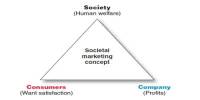Compensation Management simplifies this process for everyone. It allows HR people, line managers, and executives to work together to build a compelling and competitive approach to base salary, bonuses, incentive schemes and company benefits .
Compensation Management is more than just the means to attract and retain talented employees. In today’s competitive labor market, organizations need to fully leverage their human capital to sustain a competitive position. This requires integrating employee processes, information and programs with organizational processes and strategies to achieve optimal organizational results.
- Better decision-making: Give executives an instant, global view of your organisation’s compensation structure, helping you make the right decisions based on accurate data.
- Balance your compensation budget: Ensure you meet your financial obligations with better salary planning, tight budget control, and appropriate merit increases.
- Drive high performance: Create a compensation management strategy that links performance to reward, engaging and motivating staff at all levels.
- Find and keep the best: Use the latest market data and research to compare compensation across jobs, industries and locations. Benchmark your compensation to retain talented people and attract the best external talent.
Though Maslow’s Need Hierarchy Theory talks about compensation being at the middle to lower rung of the pyramid and the other factors like job satisfaction and fulfilment being at the top, for a majority of employees, getting the right compensation is by itself a motivating factor. Hence, employers need to quantify the employee’s contribution in a proper manner if they are to get the best out of the employee. The provision of monetary value in exchange for work performed forms the basis of compensation and how this is managed using processes, procedures and systems form the basis of compensation management.
















